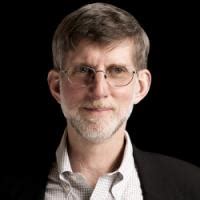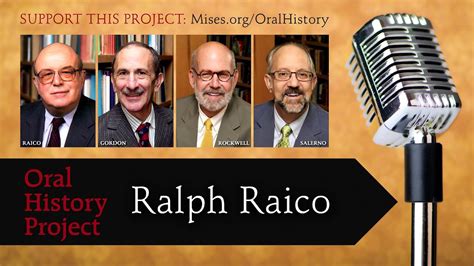A Quote by John Ortberg
Prudence is foresight and far-sightedness. It's the ability to make immediate decisions on the basis of their longer-range effects.
Related Quotes
Political journalists love graduate student intelligence, the ability to make clever allusions in seminars, and in 1999-2000, they hassled George W Bush for not having it. They didn't realise what this book succinctly displays: that the president has something far more important - CEO intelligence, the ability to ask tough questions, garner essential information and make discerning decisions.
In an economy, an act, a habit, an institution, or a law, gives birth not only to an effect, but to a series of effects. Of these effects, the first only is immediate; it manifests itself simultaneously with its cause - it is seen. The others unfold in succession - they are not seen. Now this difference is enormous, for it is often true that when the immediate consequence is favorable, the ultimate consequences are fatal, and the converse.
The step between prudence and paranoia is short and steep. Prudence wears a seat belt. Paranoia avoids cars. Prudence washes with soap. Paranoia avoids human contact. Prudence saves for old age. Paranoia hoards even trash. Prudence prepares and plans, paranoia panics. Prudence calculates the risk and takes the plunge. Paranoia never enters the water.
Most people define "street smarts" as some innate ability to make savvy decisions, or one that has developed as a result of a person being confronted with very challenging circumstances in the past. I think another common term that is used is one who has amazing "business acumen." But, whatever we call it, it is always associated with some mysterious ability, only a few possess, that allow them to make better decisions than the rest of us.
It appears to me that one great cause of our difference in opinion on subjects which we often discuss is that you have always in mind the immediate and temporary effects of particular changes, whereas I put these effects quite aside, and fix my whole attention on the long-term effects that will result from them.
In addition to self-awareness, imagination and conscience, it is the fourth human endowment - independent will - that really makes effective self-management possible. It is the ability to make decisions and choices and to act in accordance with them. It is the ability to act rather than to be acted upon, to proactively carry out the program we have developed through the other three endowments. Empowerment comes from learning how to use this great endowment in the decisions we make every day.




































